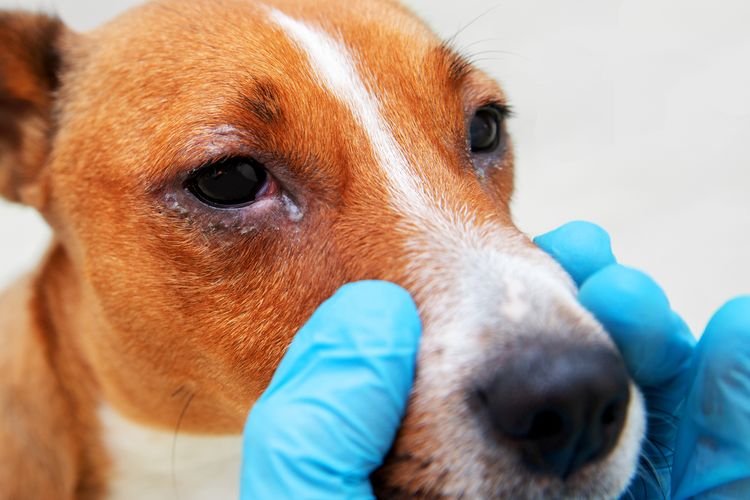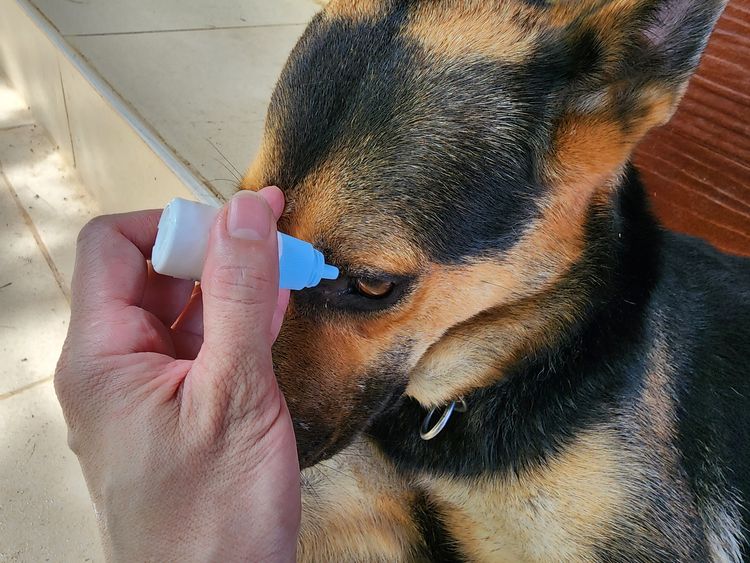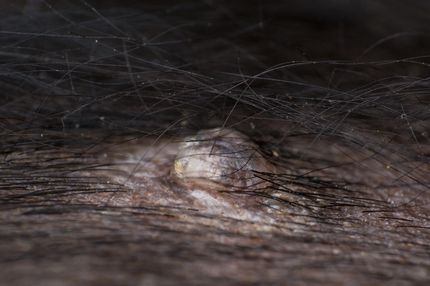Conjunctivitis in dogs: causes, symptoms and treatment.
Conjunctivitis, medically known as conjunctivitis, is commonly diagnosed in dogs. If your four-legged friend's eyes are constantly rubbed, reddened eyes are exhibited, or an unusual discharge is observed, conjunctivitis could be present. This blog post will tell you more about the causes, symptoms and treatment options.
Causes of conjunctivitis in dogs.
Conjunctivitis can be caused by a number of factors:
- Allergies: Allergic reactions can be triggered by pollen, dust or other environmental factors.
- Infections: By bacterial or viral pathogens can cause conjunctivitis.
- Foreign bodies: Sand, dust or other small particles can irritate the eyes.
- Trauma: Inflammation can be caused by injury or irritation due to scratching.
- Other diseases: Conjunctivitis can also be caused by certain systemic diseases.

Symptoms
Some commonly observed signs of conjunctivitis in dogs include:
Redness of the eye Increased tearing Purulent or mucous secretions Swollen eyelids Frequent blinking or rubbing of the eye
Treatment
If conjunctivitis is suspected in your dog, a veterinarian should be consulted as soon as possible. Depending on the cause determined, treatment may vary:
Antibiotics: For bacterial infections, antibiotic eye drops or ointments may be prescribed. Antihistamines: For allergic conjunctivitis, these may be used to relieve symptoms. Eye washings: To remove foreign bodies or irritants. Other medications: Anti-inflammatory medications or other specific treatments may also be needed, depending on the cause identified.
Prevention
To minimize the risk of conjunctivitis, should:
Regularly check for foreign objects or irritation in the dog's eyes. Consider protective eyewear for the dog in windy weather or when playing in the grass. Keep living areas clean and free of dust. Finally, it must be emphasized that conjunctivitis in dogs can not only be uncomfortable, but can also be a sign of other health problems. A veterinarian should always be consulted if symptoms are present.
Breeds that are prone to conjunctivitis:
Home remedy

- Gentle cooling: Applying gentle, cool compresses can help soothe an inflamed eye and relieve itching. A cool, damp cloth can offer the same soothing effect. Make sure the poultice is not pressed on too tightly and the eye can still breathe to get the maximum cooling effect through evaporation.
- Euphrasia (Eyebright): This plant is known for its eye soothing properties. Euphrasia drops or tea can help relieve irritation and inflammation.
- Aloe Vera Treatment: The gel of the aloe vera plant is known for its healing properties. Applying the gel to the affected eye can provide relief to your four-legged friend, as it both cools and reduces itching.
- Use of curd: A curd poultice wrapped in a sheet or gauze can provide soothing relief. If you place the curd in a terry cloth or cotton towel, this can help draw the heat out of the inflammation and relieve the eye.





















